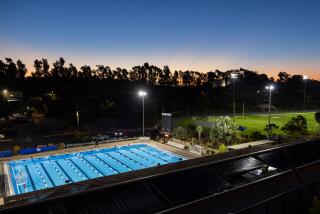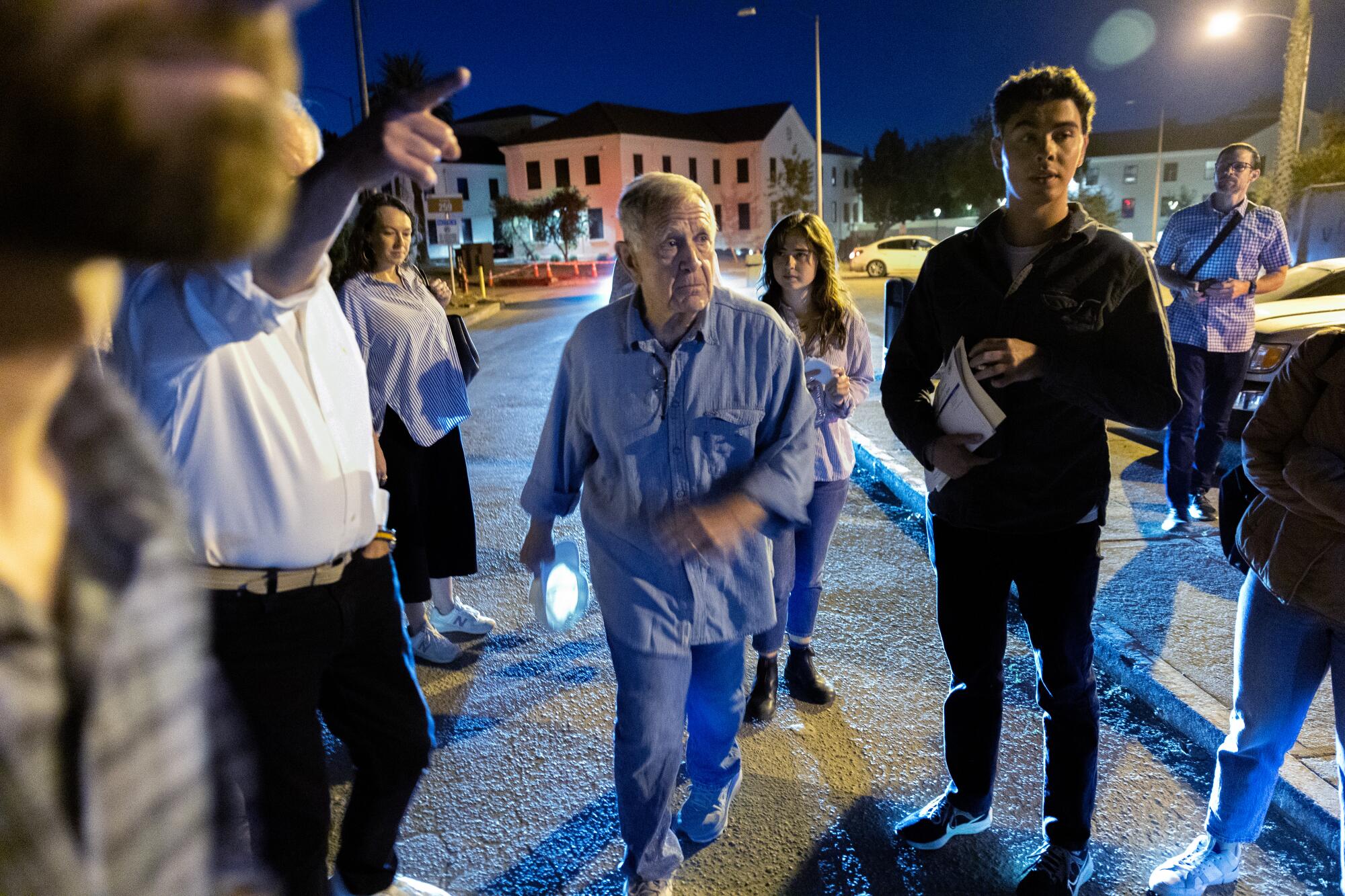
- Share via
Years of litigation now comes down to a brutal choice: To make room for shelter and housing to get thousands of veterans off the streets, should a judge tear up the lease that allows UCLA to operate its Jackie Robinson baseball stadium on veteran land? And the sports complex of an exclusive private school in Brentwood? Or a Los Angeles city park with two baseball fields and a dog-free area?
As the plaintiffs’ case neared its conclusion in the sprawling lawsuit against the Department of Veteran Affairs, U.S District Judge David O. Carter wrestled out loud over what to do about leases the federal government signed for land on the VA’s West L.A. campus that was bequeathed more than a century ago for the use of veterans.
“I’m going to make a tough decision in a while, and you’re going to help me,” Carter told a plaintiffs’ expert witness on real estate development.
To see exactly what the consequences of his ultimate ruling could mean, the judge, an 80-year-old ex-Marine, led a gaggle of lawyers, law clerks and news media last week on a nearly 10-mile march exploring every corner of the 388-acre campus.
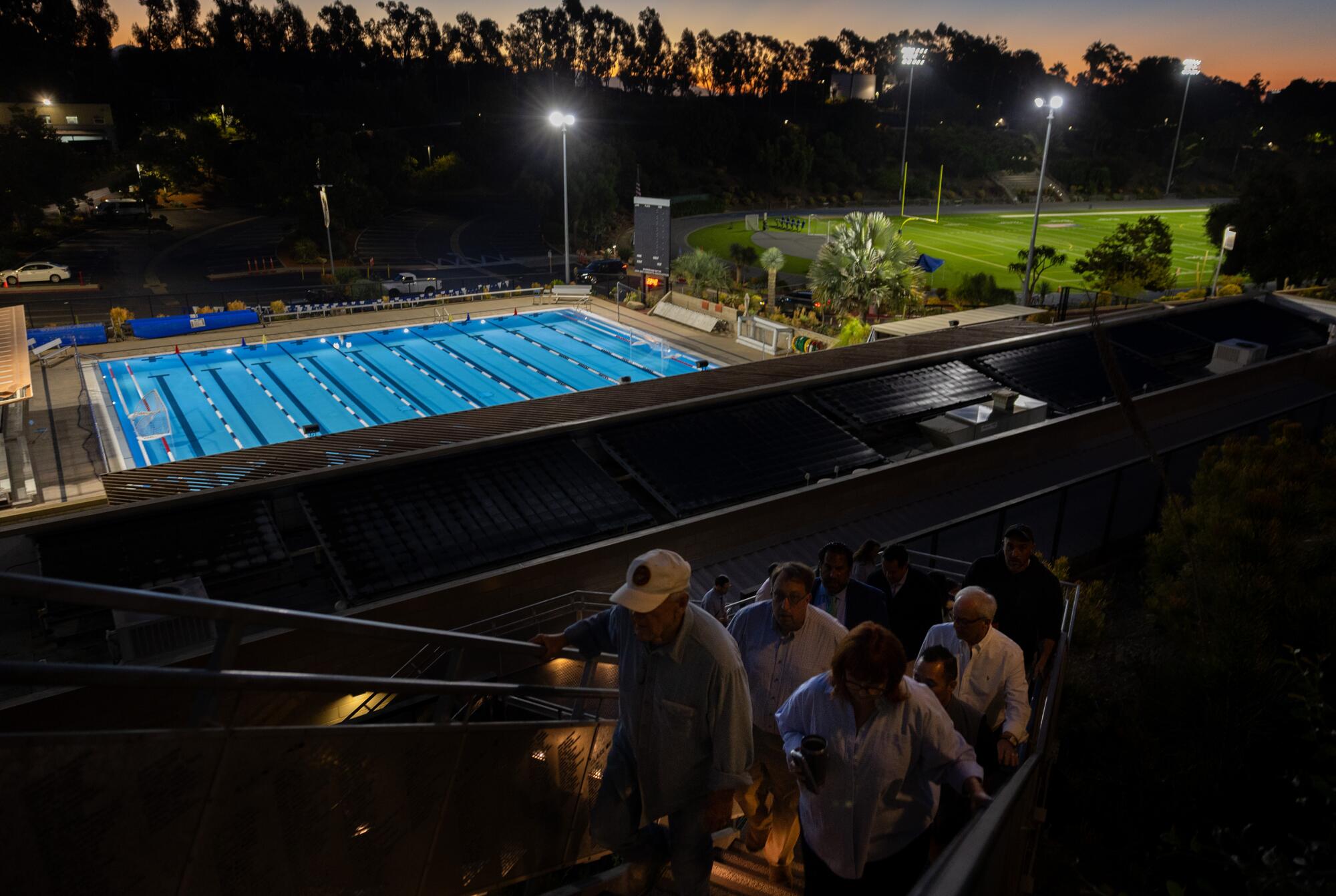
Starting an hour before daylight Wednesday on Brentwood School’s gorgeously maintained athletic facility — symbolically named the Veterans Center for Recreation and Education — the group traipsed around a football field, a workout tent, covered basketball courts, a baseball field, six tennis courts and a 10-lane pool.
Several times, Carter dourly pointed out to the lawyers the disconnect between the schedule for veterans’ access — 5 a.m. to 11:30 a.m. and 6 p.m. to 9 p.m. most weekdays — and shuttle service provided as an “in-kind” contribution to veterans that runs only from 9 a.m. to 2:15 p.m.
Midway through the six-hour trek, Carter nixed a settlement offer from Bridgeland Resources, which hoped to save its oil operation by relinquishing a corner of its lease alongside the 405 Freeway for housing.
Pointing to state air quality rules that say homes should not be within 500 feet of a freeway, Carter told Bridgeland’s attorney he wanted a buffer.
“What’s 500 feet from the freeway?” he said. “Let’s mark it off. Come on!”
He paced off most of the lot, dooming the proposal.
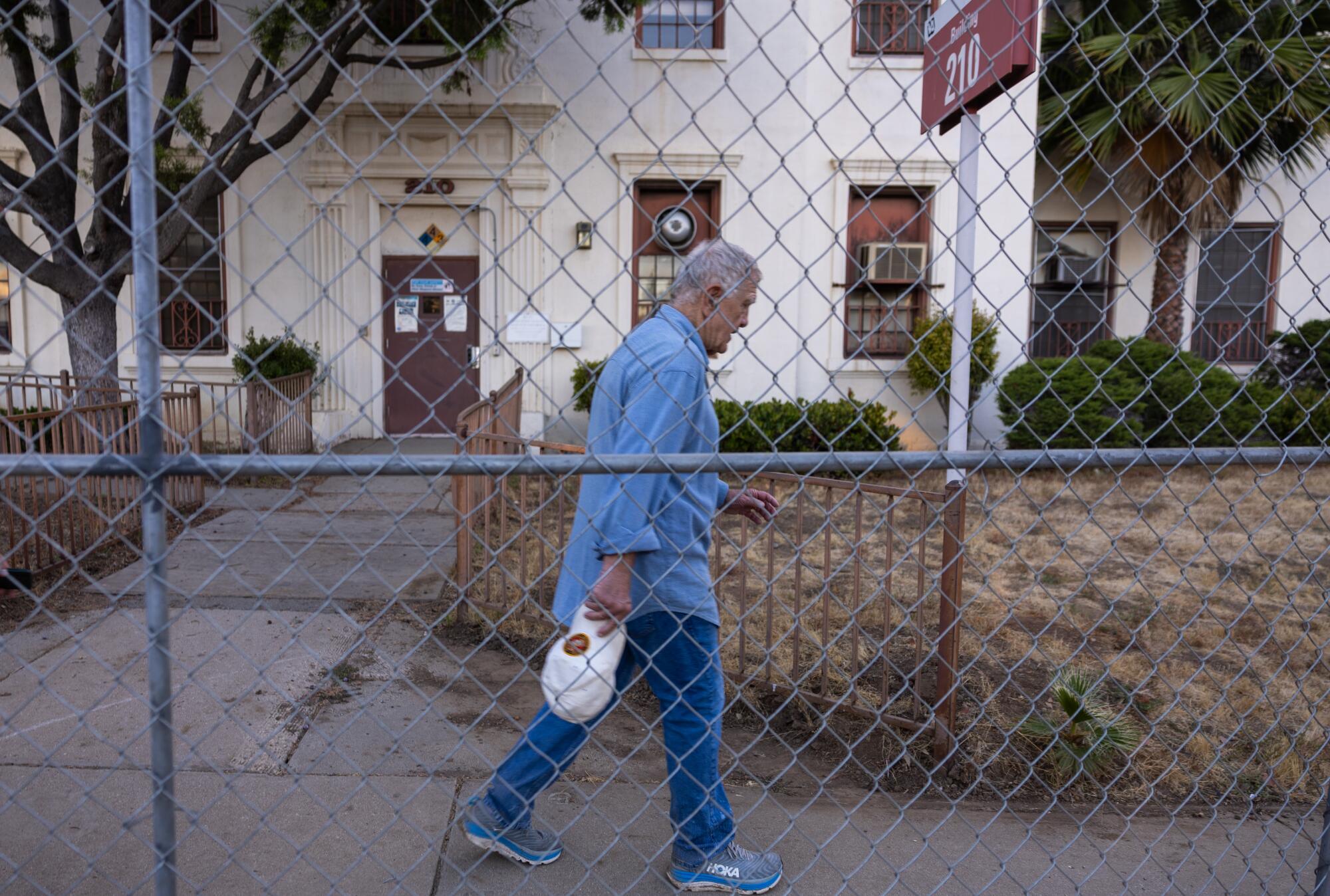
Later, under a blistering midmorning sun, Carter asked the lawyers and a VA guide how many people use a safe sleep area at the far south end of the campus where veterans can stay in their vehicles overnight. If it’s only a few people, he said, it might be better used as housing.
No one had an answer. The energetic judge would return at 8 p.m. to see for himself: seven.
The trial in downtown federal court reprises litigation going back to 2011 that challenged the leases and asserted an unmet need for veteran housing. In the earlier case, a federal judge ruled that several leases were illegal. Some were terminated, others renewed under the West Los Angeles Leasing Act of 2016.
Subsequently, the VA’s inspector general found that leases for Brentwood School, the oil wells and parking lots did not comply with the act’s requirement that they “principally benefit veterans and their families.” The VA disagreed and retained the leases. (A Brentwood official testified that the school pays rent, currently $850,000 annually, to the VA and provides more than $900,000 in “in-kind” services including meals for veterans and the shuttle service.)
In a 2015 settlement, the VA agreed to develop a master plan for the campus. A draft plan, completed in 2016, called for 1,200 units of housing on the campus in new and rehabilitated buildings with a commitment to complete more than 770 units by the end of 2022. Only 54 of those units were completed by the deadline, and only 233 are currently open.
The new lawsuit, filed in 2022 on behalf of 14 veterans by Public Counsel, the Inner City Law Center and two private firms, alleges that the VA has reneged on the settlement agreement.
The plaintiffs, now a class of all homeless veterans with serious mental illness or traumatic brain injuries who reside in Los Angeles County, are demanding that the VA nullify the leases to make the land available for housing.
In pretrial hearings, Carter made two key rulings: that a charitable trust was created by the 1888 deed granting the land to the U.S. for the “establishment, construction and permanent maintenance of a branch of [the] National Home for Disabled Volunteer Soldiers” and that Congress assumed a fiduciary duty for that trust with the leasing act.
The trial addresses three principle questions: How much housing is needed for veterans on the West Los Angeles campus? Do the leases principally serve veterans and their families? And, if not, to what extent should the leased land be clawed back for that housing?

Seeing firsthand the elaborate facilities Brentwood and UCLA have built on their lease holdings only heightened the dilemma for Carter.
Testimony in the case has cast serious doubt on the VA’s contention that the lease holders are meeting their legal obligation — in the case of UCLA’s baseball stadium, that its “predominant focus” is the provision of service to veterans.
“You would agree with me, would you not, sir, that the predominant focus of UCLA on that campus is baseball ... and not service to veterans?” the plaintiffs’ attorney Mark Rosenbaum asked Anthony DeFrancesco, executive director and chief for veterans initiatives and partnerships at UCLA.
“Yes,” DeFrancesco replied.
Yet Carter fretted over the possibility of taking back land the VA doesn’t need or wouldn’t use.
“You don’t want to be arbitrary, cut off a swimming pool, a baseball field and let them stay vacant,” he said.
When the trial resumed the afternoon after the tour, he pressed the point with the plaintiffs’ real estate expert, former L.A. Police Commissioner Steve Soboroff, who implemented the master plan for the development of Playa Vista.
Carter debated Soboroff on the development potential of the parcels the judge had viewed that morning.
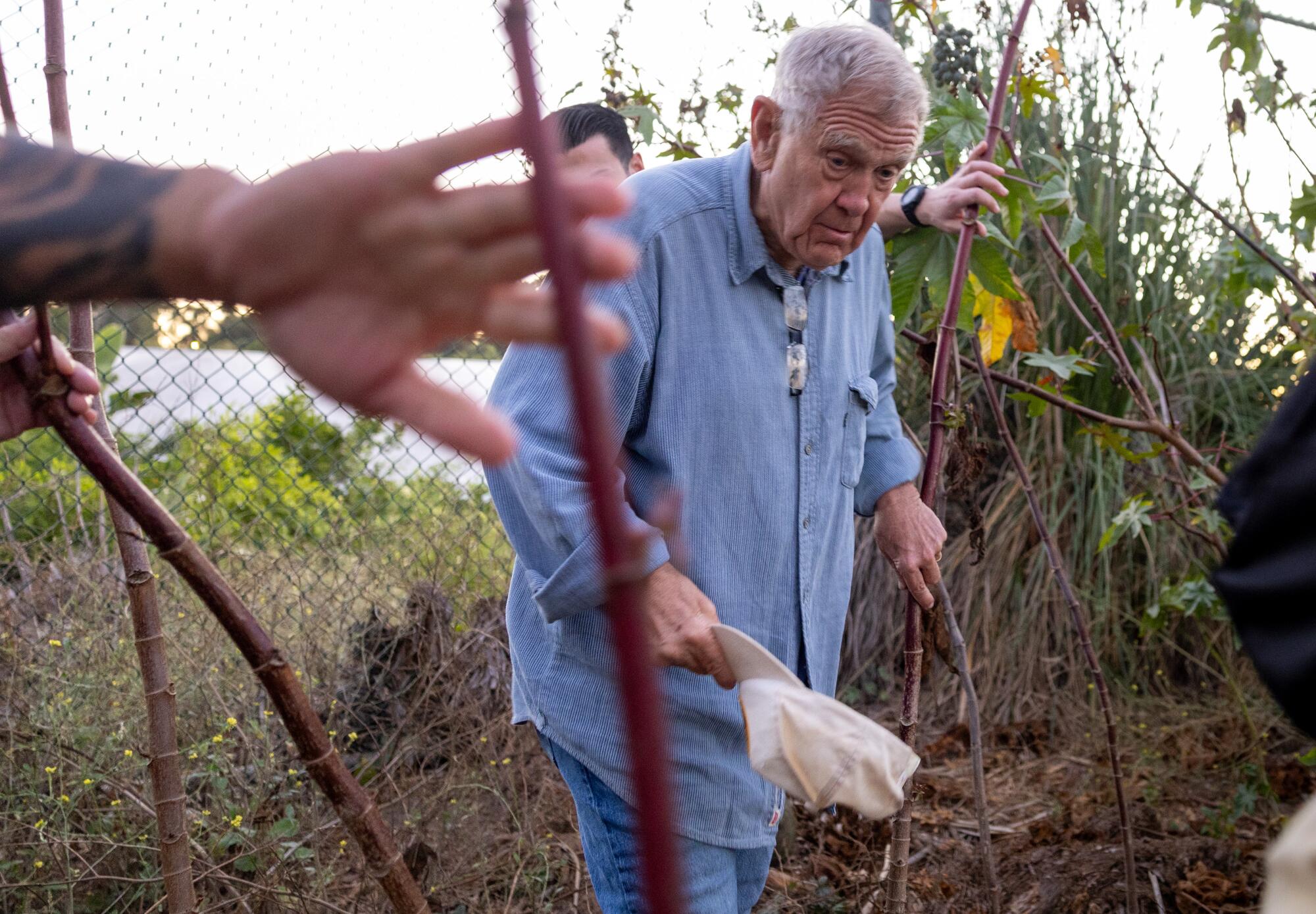
At one point, the judge zeroed in on the 12-acre city park adjacent to Brentwood. Its two baseball fields were so pockmarked by gopher holes that even walking over them was difficult.
But Soboroff, a onetime L.A. parks commissioner, disagreed with the idea that it was an ideal spot for housing.
“Taking away parks,” he exclaimed, seeming to drift from the plaintiffs’ position. “You don’t do that.”
The businessman who guided the Playa Vista project through years of obstacles saw the Brentwood property as politically fraught.
“I want to do the easiest ones,” he said. “I want to get this done without all of these privileged people going to their privileged lawyers, going to their privileged senators, going to their privileged council members, going to the Congress.”
The next day, Carter continued the line of questioning, pressing plaintiffs’ expert witness Randy Johnson, who was Playa Vista’s CFO, to estimate how many units could be built on several parcels the judge had viewed on the tour, ranging from less than two acres to more than 15.
Then he focused on the Brentwood and UCLA land, asking if it would be needed to reach the plaintiffs’ goal of 750 shelter beds and 1,800 units of permanent housing. (The plaintiffs lowered their initial demand for 1,000 shelter beds and 2,800 units of permanent housing after the 2024 count showed a reduction in homeless veterans.)
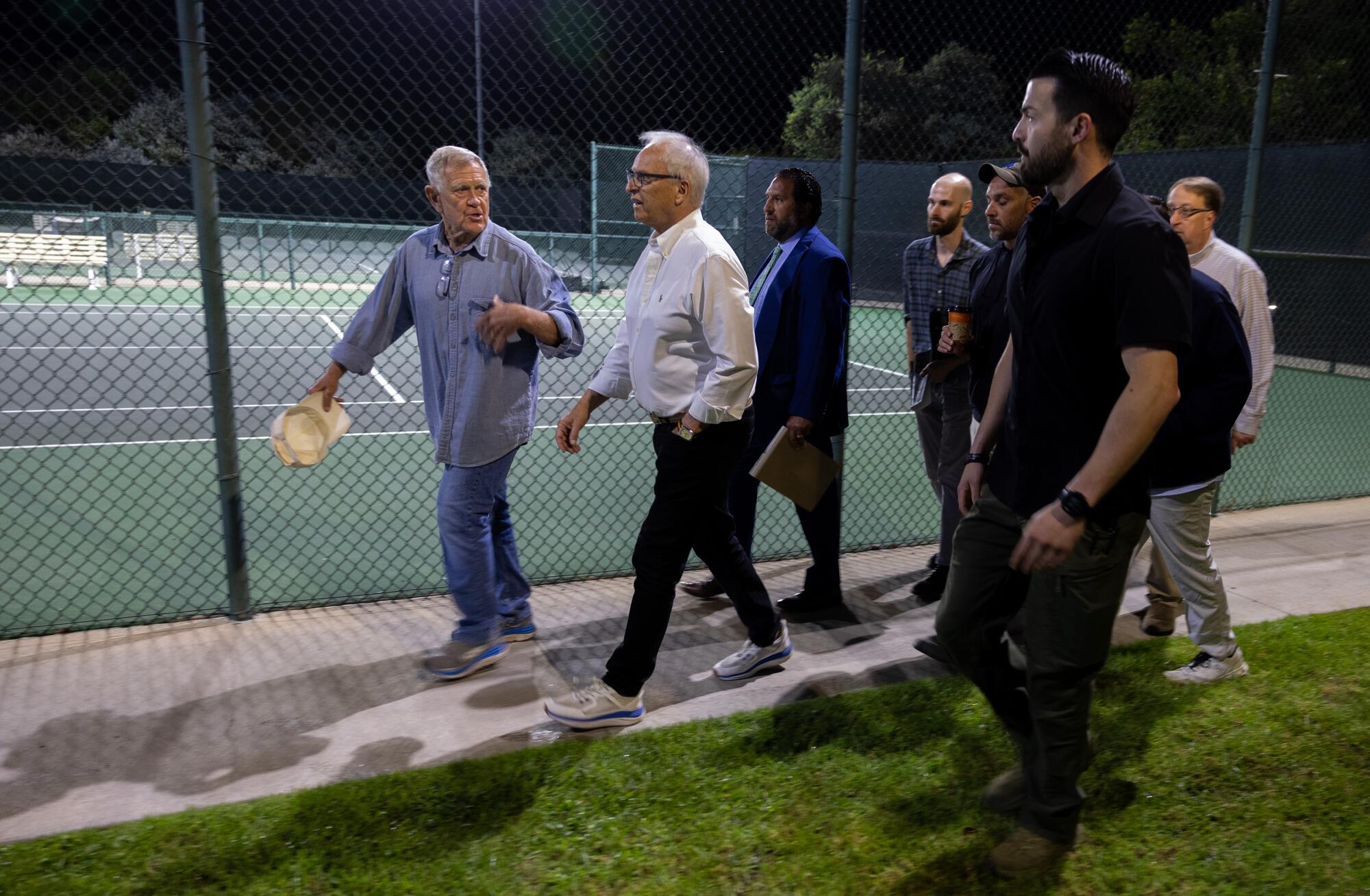
Johnson said portions of each would be needed, but he advised leaving Brentwood School’s land for a second phase to provide time to negotiate rather than face a legal challenge that he feared the school would raise.
An undercurrent in the testimony produced conflicting views of what kind of housing veterans most need.
Jonathan Sherin, the former head of the Los Angeles County Department of Mental Health, advocated for speedily providing lots of temporary housing in “triage communities,” with “proper food, hygiene, sanitation services, with opportunities to do work.”
He wouldn’t commit to a number.
“If the number is 500 and we find we don’t have anyone [else] that needs immediate temporary housing or triage housing, fine,” he said. “If it’s 1,500, then it’s 1,500.”
John Kuhn, director of the VA’s medical center, pushed back on the idea of bringing thousands more chronically homeless veterans on campus into temporary shelter.
“It would be a fantastic waste of resources,” he testified. “It’s a terrible idea. And again, degrades the environment on the campus for the people who do live here.”
Nor would veterans benefit from thousands more units of supportive housing for the chronically homeless and disabled, Kuhn said.
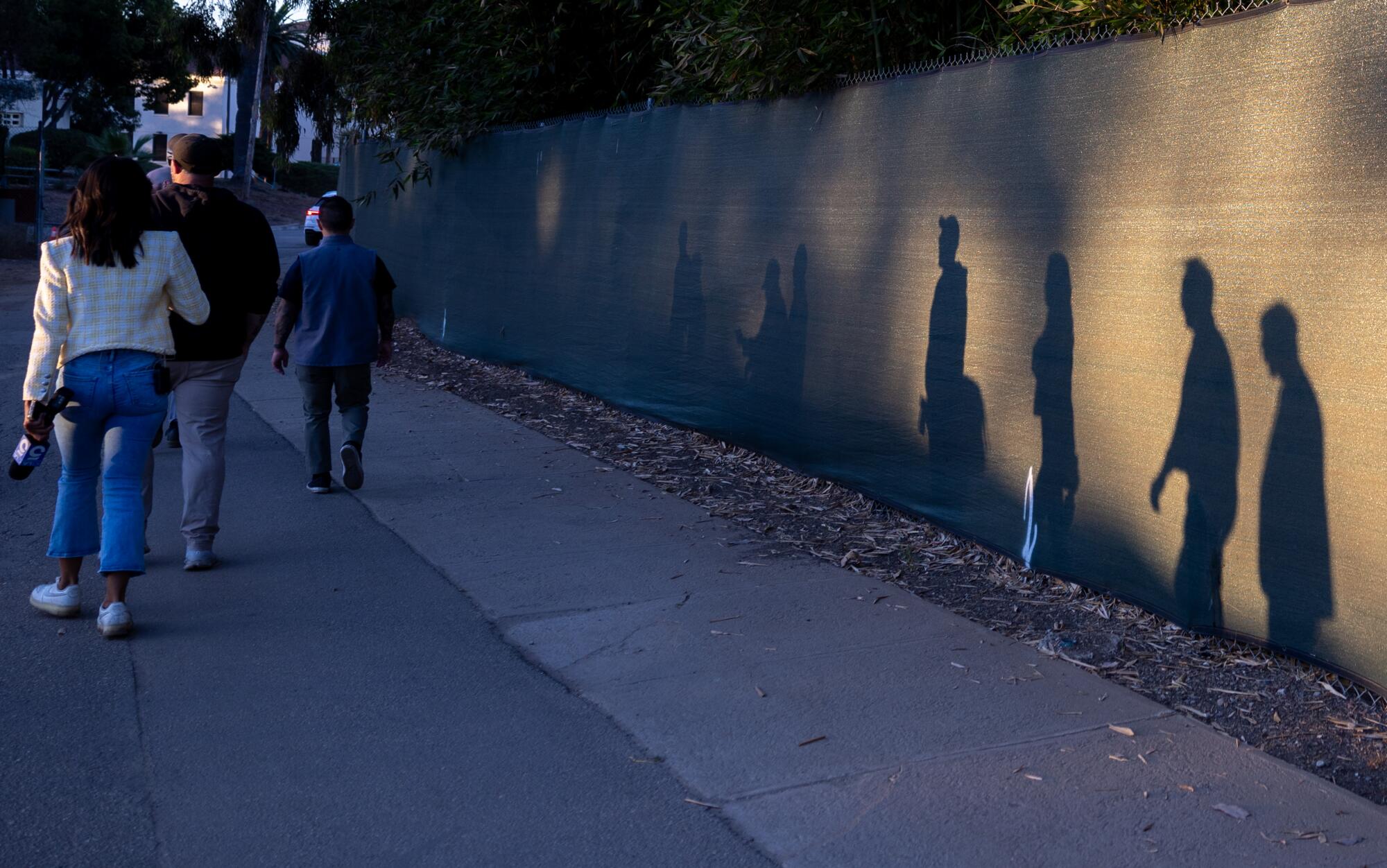
“I can’t say this any more plainly: It will be an environment that no veteran will want to live in,” he said.
Instead, he advocated a community of mixed housing.
“I think there is a lot to be said for developing more affordable housing on the grounds,” he said.
The government began presenting its case this week and is expected to rest by Friday. Carter has said he expects to reach a decision by Labor Day.
More to Read
Sign up for Essential California
The most important California stories and recommendations in your inbox every morning.
You may occasionally receive promotional content from the Los Angeles Times.
